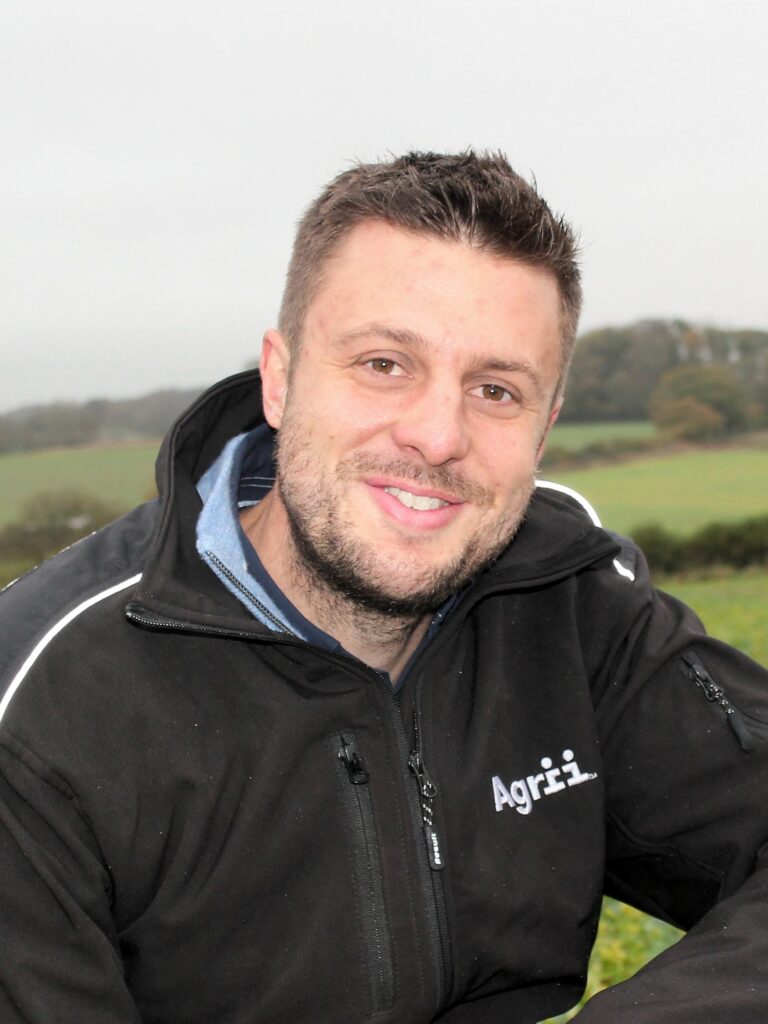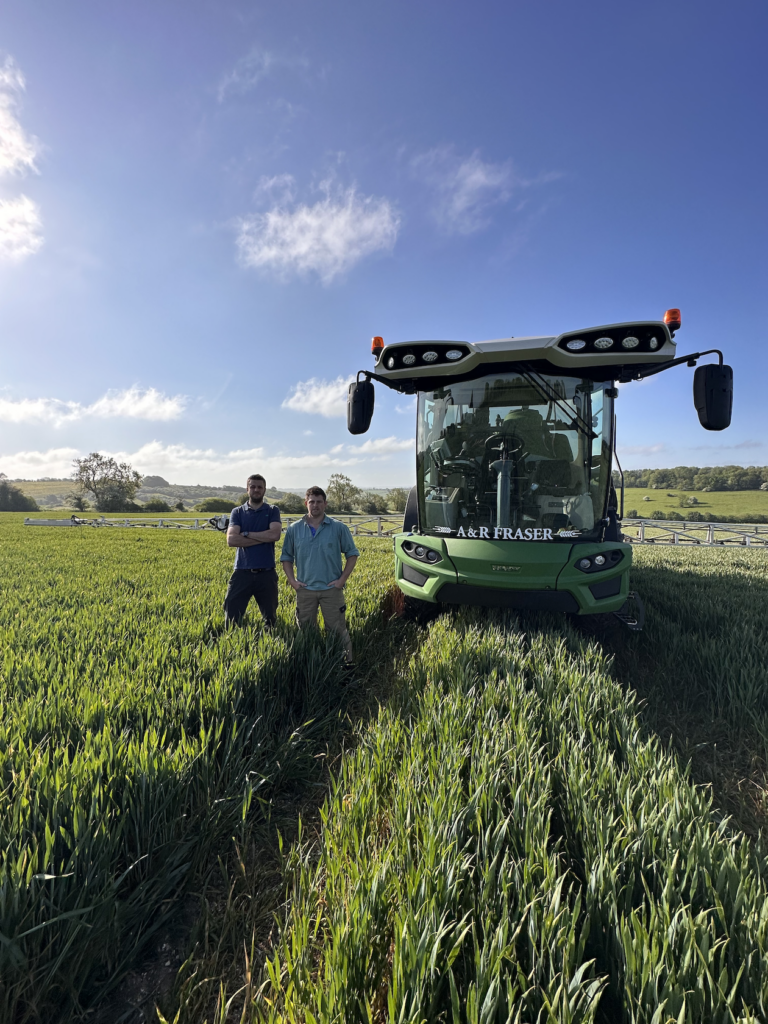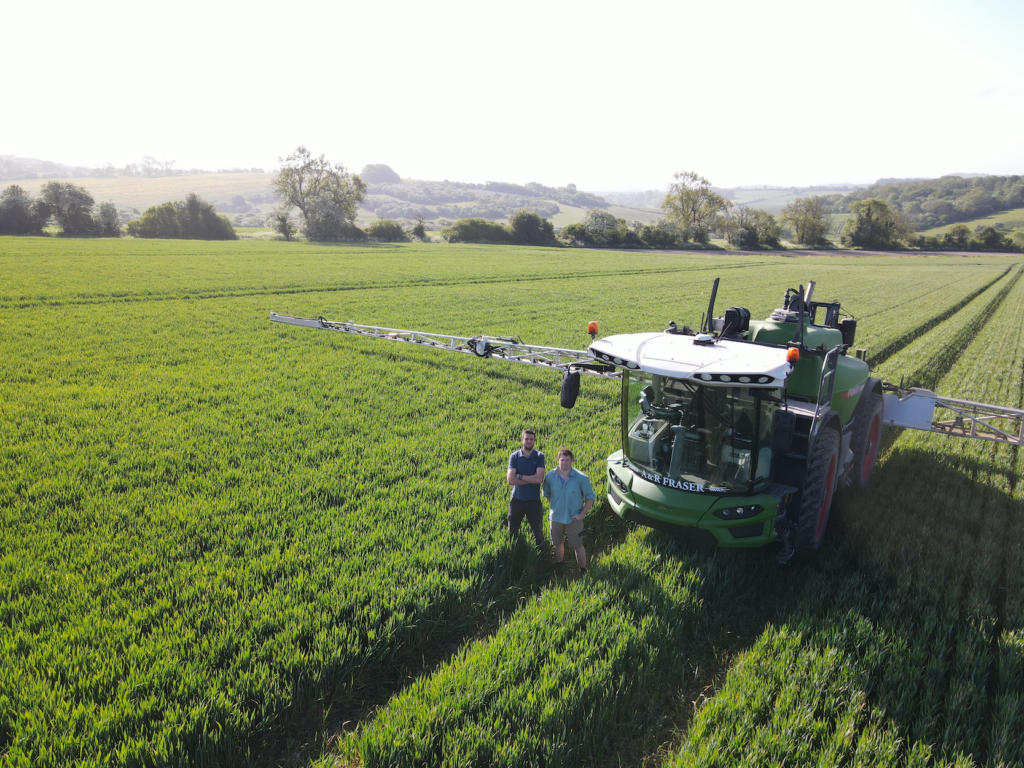Todd Jex won Arable Advisor of the Year at the Farmers Weekly Awards by being at the forefront of the latest regenerative and no-till farming practices. The award is the culmination of a journey he began almost a decade ago when his eyes were opened to a different way of farming following a visit to a pioneering farmer.
Based in Wiltshire but with clients across Dorset, Wiltshire, Hampshire and the Isle of Wight, Todd works for leading farm advice, technology and supply business Agrii. The proportion of his clients utilising no-till and regenerative practices has increased from the first farm approaching him in 2016 to almost 70% this season.
Although he did not grow up on a farm, Todd spent a lot of time with his grandfather, who managed a mixed arable and dairy farm on the Dorset – Wiltshire border. Today, his grandfather’s approach to farming would be called integrated crop management (ICM), but back then, it was considered just good crop and animal husbandry.

“Rotational ploughing, crop rotations and what he called ‘feeding the ground’ were essential parts of his philosophy,” says Todd. “He was my biggest influence until I went to Harper Adams to study agriculture, agronomy and crop science.
“I did a placement year working in R&D for another agronomy company and spent much of my time working on trials examining black-grass control. From this, I became fascinated by the cultural control options for black-grass management, like direct drilling or rotational ploughing, and followed it up with a dissertation on the subject.”
When Todd joined Agrii’s forerunner, Masstock, he helped with trial work alongside training to be an agronomist. Agrii supported his academic and practical training, with Todd completing his BASIS Diploma.
At the start of his career, most farms in the area were practising mill-till or rotational ploughing with no direct drilling. Ideas began to form in his mind about how different approaches to farming involving direct drilling might help farmers tackle black-grass.
Everything changed following an introduction to Paul and Oliver Harris. They had been doing some direct drilling with a Claydon machine but wanted to move to a true no-till system using a disc direct drill and were looking for an agronomist to support them with this change.
“The reason for the switch was for black-grass reasons and also improving soil health, which I had not encountered before. They arranged for me to visit Tony Reynolds, who had adopted no-till ten years earlier.
“Even as I was approaching the farm, I noticed how different it was because there was significantly less black-grass on his fields than others I had driven past to get there. Tony was fascinating, enthusiastic, and happy to share his knowledge and experiences.
“I was shown some research a university had been doing on his farm examining soil health and water infiltration rates compared to a neighbour’s mil-tilled farm. I couldn’t believe what I was watching; Tony’s land was absorbing the water as fast as they could pour it, and they stood waiting for the neighbour’s to drain.
“That day was a massive influence on me. Combined with my past experiences and the Agrii research I saw, especially at their Stow Longa site, I became increasingly interested in soil health. I began reading books, attending events, and listening to podcasts on the subject. By working with Paul and Oliver Harris on their farm, I could put much of what I learned into practice,” explains Todd.
The Harris family held an open day at their farm to show what they had been doing with Todd, which helped some of Todd’s other customers go in their direction a year later. This proportion has gradually built up to over two-thirds of his area.
In the future, Todd believes almost all the farmers he deals with will be utilising a direct drill system, and an agronomist’s role will become even more involved in all elements of farming. This increased involvement will be balanced by new A.I. and digital technology helping with existing tasks.

“Agronomy is already multi-faceted, but it will be even more so in the future. The agronomist will have to spend more time with farmers advising on aspects of crop production they do not currently do. Things like examining soils for compaction or advising on machinery will become the norm.
“I was delighted to have just made the Arable Advisor of the Year final, knowing that one of my customers had taken the time to nominate me. My colleague Neil Harper was also a finalist. I believe that is the first time any company has had two employees up for the award in the same year.
“I am incredibly proud to have won the award, and so are my family. It is always something I hoped to have a chance to win at some point in my career. I am a finalist for the Young Agronomist of the Year at the National Arable and Grassland Awards in February, which is another exciting opportunity.”
[panel] Case study: reaping the benefits of a different approach.
George Fraser of A&R Fraser has worked hand-in-hand with Todd to adopt a direct drill system, transforming their farming operation. Their journey began when George’s home farm was sown using a Weaving GD direct drill, and cover crops were integrated into the rotation.
A&R Fraser contract farms 3000ac across Wiltshire and Dorset. As well as contract farming, George’s brother Jonny runs a successful digestate contracting service for local farmers, and they have a herd of beef cattle. A rotation of winter wheat, spring barley, spring beans, and oilseed rape belies an astonishing performance highlighting what can be achieved through ICM and regenerative practices.
“We first started on our farm to test the system,” says George. “We then started suggesting the new approach to our customers because we could see the results. Our landowners were quick to get on board. Now, it has gone from us suggesting it to it being demanded. People say there is a big yield drop-off when you switch, but we have never seen this.”
“The main change we have made is to move away from cultivation to a focus on soil health to manage compaction and improve soil structure. We always start by measuring the soil when we bring new land into the system,” adds Todd.
The move from min-till and ploughing to direct drilling has drastically cut George’s fixed costs. He has calculated that they are 40% lower. George retains a low disturbance subsoiler for primary cultivation when needed, unlike some regenerative farmers who strictly adhere to a no-till system. He believes this can be necessary for up to five years on heavy soils to manage soil compaction.
It is not just fixed costs that have been reduced. The focus on soil health also means they are getting more yield from fewer inputs. Using slurry and digestate, combined with moving to liquid fertiliser and using inhibitors, has halved inorganic nitrogen use.


